


The benefit of cinnamon, its aromatic nature, exquisite taste and medicinal value has been prized for thousands of years. It is mentioned in ancient texts from China to Egypt including many references in the Bible.
The benefit of cinnamon was so highly prized in the middle ages that it was one of the first commodities to trigger far east expeditions by the Dutch and Portuguese. And today's research confirms the benefit of cinnamon as a natural remedy for a wide range of ailments including
The benefit of cinnamon arises from the medicinal properties of its oil including its antispasmodic and antimicrobial nature. As a warming herb it is used to treat colds, influenza, and inflammation of the joints. It is also used to treat digestive complaints such as flatulence, diarrhea and nausea or gastroenteritis. Antimicrobial means it is effective against viral, fungal and bacterial infections. It is also effective against some parasites. Indeed, cinnamon was an essential ingredient in a Middle Ages formula that proved to be an effective guard against the plague.
TO COMBAT ATHLETE'S FOOT
- Place 8 sticks of Cinnamon in 4 cups of water
- Simmer for 5 minutes.
- Turn off the heat and let steep for 45 minutes.
- Mix 1/2 to 1 cup of this decoction with 3 to 4 cups of water, depending on the preferred strength.
- Use as a foot bath.
Before soaking your feet in the Cinnamon bath, test for allergic reaction by applying it to a small spot on your foot with a cottonball. Leave overnight.
Cassia and Ceylon are the most popular cinnamons but there are reportedly over 200 hundred different kinds of evergreen cinnamon trees. The benefit of cinnamon trees is found in the dried bark that is ground for the spice or from which oil is harvested. Cassia is the Chinese tree while Ceylon is native to southern Indian and Sri Lanka. For some undiscovered reason, Ceylon cinnamon is considered by many to be the true cinnamon. But both trees are simply different species of the same family.
The heralded benefit of cinnamon occurs in both varieties but a little known difference between the two is that cassia has a higher concentration of coumarin. While coumarin is a cancer-preventing component that is found in many plants the European community has determined that there may be a health risk associated with consuming too much cassia cinnamon compared to the Ceylon variety. In "particularly sensitive individuals" too much coumarin can be damaging to the liver and the kidney.
A DELICIOUS CINNAMON DRINK
- Place 8 sticks of cinnamon in 4 cups of water
- Simmer for 5 minutes.
- Turn off the heat and let steep for 45 minutes.
- Add 2 Tablespoons of Honey.
- Add 2 to 4 cups (to taste) of filtered water.
- Serve over ice.
For additional spice add 1 cup of ginger tea to the above recipe.
- Grate a thumb-size piece of fresh young ginger root.
- Steep in a small teapot of hot water for 5 to 10 minutes.
- The longer you steep, the stronger the tea.
Because cinnamon is and has been widely used for a very long time, it is generally considered safe. It is toxic only in large or excessive doses with side effects that may include changed breathing, stomach upset, diarrhea, sleepiness, depression or convulsions, red or bleeding gums and mouth ulcers. Cinnamon oil is extremely potent and should only be used with caution. The ingestion or use of Cinnamon oil on the skin can be hazardous.
The common every day ground cinnamon purchased at your local grocery store is bound to be of the cassia variety. Go farther a field to a spice specialty store to get the true cinnamon and for an orgasmic experience buy cinnamon sticks and grind it yourself!
Learn about a great source of organic cinnamon and cinnamon sticks or learn about the benefits of turmeric.

Copyright © 2007 - 2009 Inward Bliss. All Rights Reserved. All trademarks used on this site are the property of their respective holders.
This site uses the Perfect 'Right Menu' 2 Column Liquid Layout by Matthew James Taylor